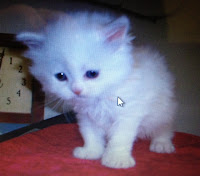- Appears bright, highly intelligent, and articulate but unable to read, write, or spell at grade level.
- Labelled lazy, dumb, careless, immature, "not trying hard enough," or "behavior problem."
- Isn't "behind enough" or "bad enough" to be helped in the school setting.
- High in IQ, yet may not test well academically; tests well orally, but not written.
- Feels dumb; has poor self-esteem; hides or covers up weaknesses with ingenious compensatory strategies; easily frustrated and emotional about school reading or testing.
- Talented in art, drama, music, sports, mechanics, story-telling, sales, business, designing, building, or engineering.
- Seems to "Zone out" or daydream often; gets lost easily or loses track of time.
- Difficulty sustaining attention; seems "hyper" or "daydreamer."
- Learns best through hands-on experience, demonstrations, experimentation, observation, and visual aids.
Vision, Reading, and Spelling
- Complains of dizziness, headaches or stomach aches while reading.
- Confused by letters, numbers, words, sequences, or verbal explanations.
- Reading or writing shows repetitions, additions, transpositions, omissions, substitutions, and reversals in letters, numbers and/or words.
- Complains of feeling or seeing non-existent movement while reading, writing, or copying.
- Seems to have difficulty with vision, yet eye exams don't reveal a problem.
- Extremely keen sighted and observant, or lacks depth perception and peripheral vision.
- Reads and rereads with little comprehension.
- Spells phonetically and inconsistently.
Hearing and Speech
- Has extended hearing; hears things not said or apparent to others; easily distracted by sounds.
- Difficulty putting thoughts into words; speaks in halting phrases; leaves sentences incomplete; stutters under stress; mispronounces long words, or transposes phrases, words, and syllables when speaking.
Writing and Motor Skills
- Trouble with writing or copying; pencil grip is unusual; handwriting varies or is illegible.
- Clumsy, uncoordinated, poor at ball or team sports; difficulties with fine and/or gross motor skills and tasks; prone to motion-sickness.
- Can be ambidextrous, and often confuses left/right, over/under.
Math and Time Management
- Has difficulty telling time, managing time, learning sequenced information or tasks, or being on time.
- Computing math shows dependence on finger counting and other tricks; knows answers, but can't do it on paper.
- Can count, but has difficulty counting objects and dealing with money.
- Can do arithmetic, but fails word problems; cannot grasp algebra or higher math.
Memory and Cognition
- Excellent long-term memory for experiences, locations, and faces.
- Poor memory for sequences, facts and information that has not been experienced.
- Thinks primarily with images and feeling, not sounds or words (little internal dialogue).
Behavior, Health, Development and Personality
- Extremely disorderly or compulsively orderly.
- Can be class clown, trouble-maker, or too quiet.
- Had unusually early or late developmental stages (talking, crawling, walking, tying shoes).
- Prone to ear infections; sensitive to foods, additives, and chemical products.
- Can be an extra deep or light sleeper; bedwetting beyond appropriate age.
- Unusually high or low tolerance for pain.
- Strong sense of justice; emotionally sensitive; strives for perfection.
- Mistakes and symptoms increase dramatically with confusion, time pressure, emotional stress, or poor health.
(© 1992 by Ronald D. Davis.)








